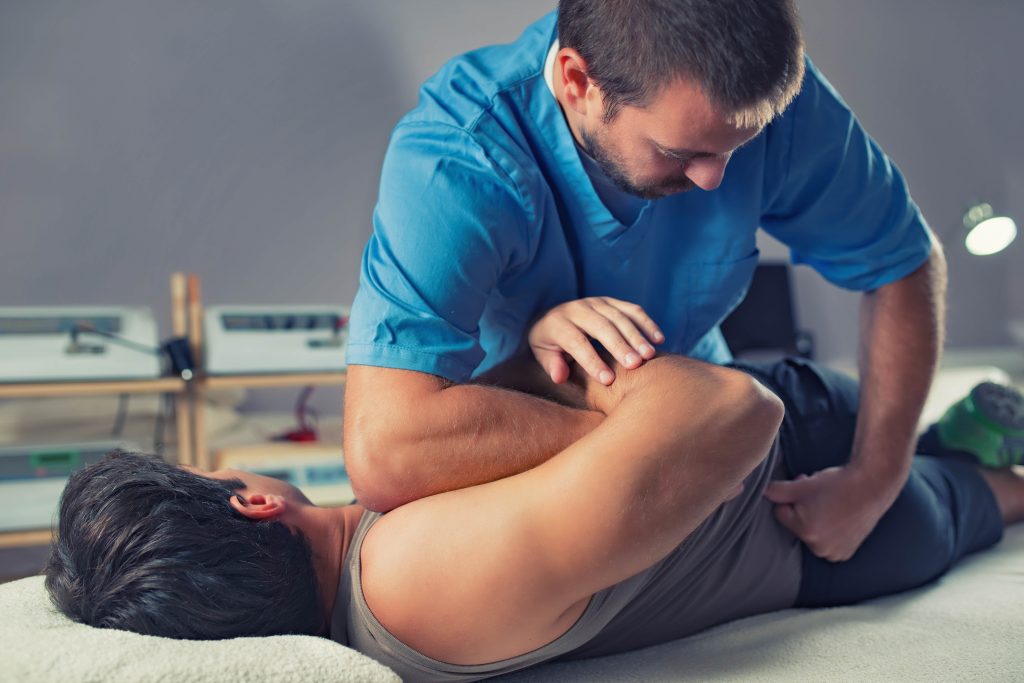
Start Your Health Journey Here – Schedule Your Consultation Today!
toprehaboshawa@gmail.com
905-436-2722

Can you believe it? You have reached the finishing line of your professional journey and are now entering a world of limitless opportunities!
Whether you want to explore the world, learn new hobbies, or simply spend more time with your family, now is your time to shine!
But, in the middle of all the excitement, there is one essential ingredient for a happy retirement: being active and healthy. And that comes by focusing on physical therapy services.
It is no secret that our bodies require a little more TLC as we age. But do not worry—staying fit does not have to include hard gym exercises or marathons. Instead, focus on choosing fun activities and making them part of your everyday routine.
From simple exercises to physiotherapy, massage therapy, and other services, unlock your full potential, stay in shape, embracing a pain-free lifestyle.
So have a seat, maybe a cup of tea, and let us discuss some practical recommendations to help you embrace this golden chapter with stamina and vitality!
Remaining physically active is essential for keeping both body and mind in good shape. Even simple activities can have a significant influence.
Consider gentle activities on your joints, such as walking, swimming, and cycling. These workouts promote cardiovascular health without causing undue effort. Combining these with physiotherapy exercises can help increase mobility and relieve pain or stiffness.
This improves flexibility and balance, which can help reduce falls and injuries. A moderate yoga lesson or guided stretching session can do wonders!
Physiotherapists and osteopathic physicians might offer customized stretches targeting specific problem areas to increase flexibility safely.
Maintaining muscular mass is critical as you age. Light weights and resistance bands can be quite helpful. Strength training under the supervision of a physiotherapist provides optimal technique and prevents damage.
Massage can help you recover faster from exercise by reducing muscle tension and boosting circulation.
Find an activity that you really enjoy. Whether you dance, garden, or play pickleball, being active is simpler when it is enjoyable!
Good eating is essential for maintaining a healthy lifestyle. Consider food as fuel to keep your engine working properly.
Your go-to foods should include fresh fruits and vegetables, whole grains, lean proteins, and healthy fats.
Dehydration can sneak up on you, particularly as you become older. Maintain easy access to water throughout the day.
A slowed metabolism may need you to change how much you eat, but balance is essential.
Calcium and Vitamin D are essential for bone health, omega-3 fatty acids for heart and brain function, and fibre for digestive health.
All the physical therapy services providers will confirm that a healthy lifestyle is more than just keeping your body in shape. Your mental health is also essential!
Puzzles, reading, or learning a new skill might help you stay sharp.
Connecting with friends, joining a club, or volunteering provides a sense of purpose and alleviates loneliness.
Meditation, deep breathing exercises, therapeutic massage, or simply enjoying a hobby can all help to reduce stress. Regular physiotherapy or massage sessions can also help reduce stress by fostering relaxation and relieving physical strain.
Did you know? Research has demonstrated that maintaining social connections improves both mental and physical health outcomes.
Your body knows best, so pay attention when something feels strange. Regular visits to health professionals can help detect any problems early.
Follow the prescribed testing for blood pressure, cholesterol, eyesight, and other conditions.
If you are experiencing pain or stiffness in your whole body, try opting for physical therapy for back pain. They can develop personalized treatment regimens that include manual therapy, targeted exercises, and lifestyle advice to reduce pain and increase mobility. Sometimes, massage therapy for sciatica can also relieve the pain.
Specialists such as osteopaths and physiotherapists can help you design exercise or wellness routines to your specific needs and concerns.
Resting may seem wrong when it comes to being active, but it’s an important aspect of maintaining good health.
Aim for 7-8 hours of restful sleep per night. Create a nightly routine to relax. Never take sleep for granted!
For perfect physical therapy services, include periods of peace throughout your day, such as a warm bath, moderate stretching, or simply sipping tea while admiring the view. Massage therapy can also aid in relaxation by reducing tension and promoting restful sleep.
With help, you can navigate retirement and associated lifestyle changes more easily. When you are healthy, even after retirement, you can:
Participate in local workout groups, book clubs, or online retiree forums. Physiotherapy clinics frequently hold group fitness classes or wellness programs for seniors, which provide both physical advantages and an opportunity to interact.
Do not be afraid to rely on family or close friends. Sharing experiences develops ties and creates a valuable safety net.
Physiotherapy helps treat aches, stiffness, and chronic problems that may limit movement. A physiotherapist can design a personalized exercise program to strengthen muscles, increase flexibility, and avoid injuries, allowing you to remain active and pain-free.
Yes, osteopathy treats the body’s musculoskeletal system with manual therapy to relieve stress, increase circulation, and restore mobility. It works exceptionally well for arthritis, back pain, and joint stiffness, all common in retirees.
Swimming, chair yoga, and tai chi are all excellent low-impact exercises. Physiotherapists can also offer light stretching and resistance exercises specific to your skills, guaranteeing safety and progressive growth.
Your retirement years are an excellent opportunity to focus on yourself. Taking little, consistent actions to be active and healthy will allow you to enjoy this time with energy and passion.
Why not start now? Dust off your walking shoes, get a friend to join you for yoga, or schedule an appointment with a physiotherapist, osteopath, or massage therapist for individualized advice Remember, it is never too late to prioritize your health



Offering excellence in therapeutic care that delivers results.
Offering personalized rehabilitation for pain relief and mobility improvement.